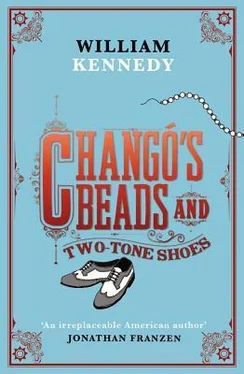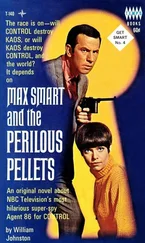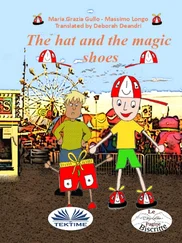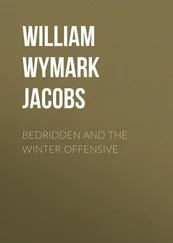“Will you duel with Mr. Cooney?” Renata asked him.
“What do you think I should do?”
“I think you shouldn’t.”
“Why not?”
“It’s beneath you.”
“Thank you. What about you, Mr. Quinn?”
“I like five rounds of bareknuckle. I think you’d take him in three.”
“Two.”
“Then again, maybe one. He does have a glass jaw.”
“Challenge him with a song,” Renata said.
“I’d lose. He’d sing the Marine Hymn.”
“What shall I tell him?” Quinn asked.
“Tell him I’ll pay his doctor bills and buy him a round-trip ticket to Paris. Tell him to stay out of the Floridita. Tell him to watch out for slivers in his ass. Tell him to fuck off, and that I really liked his song.”
“Never apologize, never explain,” Quinn said.
“John Wayne said that, a hell of a writer.”
“What if Cooney won’t go away?”
“Tell him if I wanted to die I wouldn’t let him do it, I’d do it myself. This is a suicidal country, does he know that?”
“I’ll try to send your message.”
“Tell him I don’t want to kill anybody. Tell him my dog died.”

Quinn wanted to see Demajagua, where Céspedes rang the bell and freed his slaves, but there was no time. He had to get to Santiago, settle Renata in at the Casa Granda where she’d stay until she made contact with Felipe Holtz, and then he’d board an army plane ferrying newsmen to the press conference at El Macho, a temporary army base on the south coast. Some forty reporters and photographers would be converging there for this theatrical army venture that had been in the works for weeks, its focus La Plata — the army outpost that Fidel, risen from the dead, had attacked in January. Fidel’s death was old news. His look-alike corpse, which the army took credit for, had been on front pages in December after the disastrous landing of his boat Granma —less a landing than a shipwreck — in a swamp at Playa de Las Coloradas near Niquero. The eighty-two seasick invaders made their way to Alegría de Pío, where the army cornered and killed two-thirds of them, even after surrender, and the survivors fled in chaos into the Sierra Maestra. Silence followed.
Then came dead Fidel and other photogenic corpses.
Then came La Plata, a new army outpost on the Magdalena River near the sea. Two new barracks were being built on a vast estate owned by the Domech family (bordering the Holtz family estate). The barracks were built next to the living quarters of three Mayorales — overseers who as a cadre policed most of the major estates in Oriente (not the Holtz estate), and whose main job was to drive off the Precarista peasants who perennially squatted on the estates. War was perpetual between the Mayorales and Precaristas.
Fifteen soldiers had been assigned to La Plata to track the ragtag Castro rebels, wherever they might be in the Sierra. But the rebels moved first, proving to the world and Batista that they were not dead, attacking the barracks January 16. The army said two soldiers and eight rebels were killed. Six weeks later the army said well, actually, forty rebels died, twenty were taken prisoner, and twelve of our soldiers died.
Now at El Macho Quinn listened as Colonel Pedro Barreras, the commander in Oriente, told reporters that the seriously final count at La Plata was five soldiers killed with knives while they slept, three wounded and left for dead, and three who escaped the rebel knifing. No rebels died. Castro led the attack, so he obviously didn’t die in December, and we think after Niquero he joined a gang of Precaristas in the Sierra, the murderous outlaws who have lived up there for decades, a law unto themselves. They even keep harems, five to ten women for each man.
The army, the Colonel said, now has 566 troops in the Sierra plus 250 intelligence agents in disguise among the peasants. There is no doubt whatever that Castro is no longer in these mountains. Our patrols and planes are covering an area eighteen by nine by nine miles, from Las Mercedes to Manacal to Aji de Guani, “the critical triangle” where Castro has been operating. We have seen no movement and are certain he’s not there. His famous interview with Matthews of The New York Times may have taken place in Cuba but not in the Sierra. And the photo of him holding a rifle with a telescopic sight while Matthews takes notes is obviously a fake.
Quinn asked the Colonel: Who are those outlaws with harems?
Julio Guerrero, said Barreras. Chichi Mendoza, Sergio and Manuel Acuna, and Arsenio Zamora.
Arsenio.
Barreras announced that the army would fly reporters over the critical triangle to prove how serene and rebel-free it was. They would also drive everybody to La Plata. Quinn, with triple credentials— The Havana Post, Time magazine, and The Miami Herald —rode in the second jeep with a Lieutenant Cordero, behind the jeep of Colonel Barreras, who guided the tour over steep and narrow mountain roads. The forest was so dense with an overgrowth of leaves, hanging flora, and a waist-high undergrowth of plants and vines, that sunlight could never reach the ground; so what pilot could see a nest of dug-in rebels through such natural cover?
“Do you find anybody trying to join Castro’s force?” someone asked.
“Nobody is that stupid,” Barreras said. “The army has cut off all traffic to the mountains.”
The Barreras convoy of jeeps and chain-driven lumber trucks, the only vehicles that could navigate these wretched roads, stopped at tiny settlements, none with electricity, to let the press hear peasants talk about their loyalty to Batista (not Castro, as the myth of the day had it), these grateful souls all but genuflecting before the Colonel in praise of the food, medicine, money, and new houses the army had given them.
At the tiny village of La Marea del Portillo Quinn fell back from the press cluster and studied the forest, looking for his grandfather who, in 1870, also set out from Santiago on his journey into rebel domain. A Spanish colonel had told him he could go anywhere in Cuba within Spanish lines; but added with a smile that the army will shoot you with great pleasure as a spy if you cross into Céspedes territory. The officers staging this La Plata playlet today will do the same for anybody trying to see Fidel. But like his grandfather, who made it to Céspedes without getting shot, Quinn was obligated to be here, convinced by a capricious education that he should track what was fundamental; and the fundamentality that was Fidel was now at large in these mountains. That Herbert Matthews of the Times had just been here did not diminish what Quinn was doing. Hemingway might think of it as the left hook after the right cross to prove twice that the hero is alive. Quinn felt exhilarated doing what was in his blood to do. He saw his grandfather — the Cubans called him El Quin — on horseback moving through a plain of high guinea grasses and climbing into these hills.

He was following a trail written out in detail in an anonymous letter to him at his hotel saying, we heard you want to enter Cuba Libre. Was the letter a trap by the Spanish army, or by thieves who knew he traveled with gold? Perhaps, but he was driven to find Céspedes, talk to him and prove his existence, give the lie to the Spaniards who said he was dead, and confront personally this singular fellow who anointed himself as the Cuban messiah and who courted death, avenged it, surrounded himself with the dead, created the dead.
Quinn’s grandfather wore tall boots, a palm-leaf hat, and carried two revolvers and a machete to fend off the marauding robbers the Spaniards warned him about. The warnings were an effort to discourage his daily expeditions toward Cuba Libre; runaway niggers the Spaniards called them, brutal savages, little more than cannibals. He rode four hours to the destination given in the letter, a ceiba tree so large it might have been part of primordial Cuba, and he waited near it till darkness, ready to fight highwaymen with his machete, ready to be shot and found with his pockets inside out. He dismounted and sat in the desolate darkness, nothing to do but trust that all his conversations had made his purpose known and his message had reached the Mambí leaders, who desperately craved the worldwide publicity for their movement that he represented. He could give the lie to the Spaniards’ claim that they had killed most of the rebels and there was no serious war.
Читать дальше














